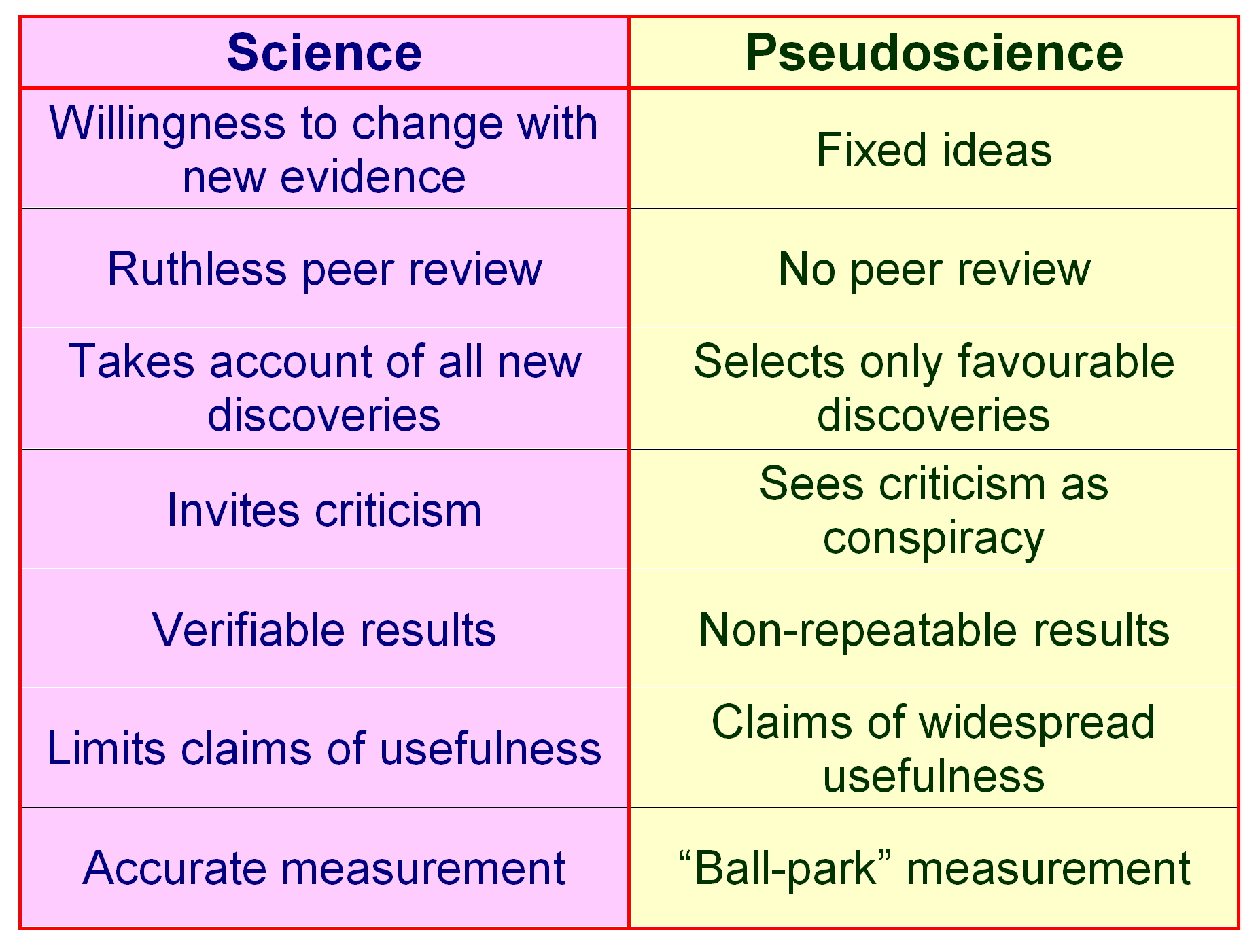This article first appeared here in July 2011. You can also download the latest .pdf version here: Scientific Method . Our full range of Skeptics Guides can be accessed using the USEFUL INFO tab at the top of this page.
“Science is best defined as a careful, disciplined, logical search for knowledge about any and all aspects of the universe, obtained by examination of the best available evidence and always subject to correction and improvement upon discovery of better evidence. What’s left is magic.
And it doesn’t work.”
– James Randi
The term “Scientific Method” is used to describe the way scientific research is designed, performed and reviewed. Good science depends on rigour – strict and unfailing adherence to basic principles.
In simple terms, as a scientist, you would:
1. Make some observation about something that is going on in the universe.
2. Form a hypothesis, (tentative explanation) that is consistent with what you have observed.
3. Make predictions based on your hypothesis. In other words, if your explanation is right, then certain things should happen under controlled circumstances.
4. Test those predictions by careful experiments or further observations and modify the hypothesis in the light of your results. Be prepared to “fine tune”, alter or abandon your hypothesis in the light of these observations.
5. Repeat steps 3 and 4 until your hypothesis and observations consistently tally. As a rigorously tested explanation of your observations, your hypothesis is now entitled to be called a theory.
Once that has happened, you would publish your theory, as a “paper” in one of the scientific journals. You share your discovery with other scientists around the world.
What comes then is a process called “Peer Review”. You can expect your theory to be examined minutely. Your fellow scientists will try to repeat your experiments. That is tremendously important, because sometimes a researcher will have a preconceived belief that is so strong that consciously or unconsciously, they choose results selectively to support that point of view. Even if your theory survives this close scrutiny, it may still be discarded in time as better data becomes available.
Other belief systems exist which are not supported by the process of Scientific Method. Some of these are religious in nature. Others, like astrology, homeopathy, iridology, telepathy and telekinesis can only be designated with the general term pseudoscience.
Some differences between science and pseudoscience
(click to enlarge)



Reblogged this on The Logical Place.